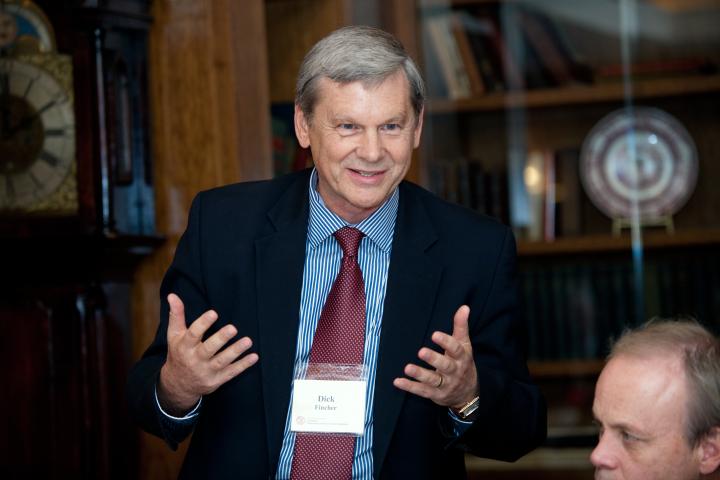
ILR Alumna Takes on Hollywood Bosses
When Ellen Stutzman ’04 was named chief negotiator by the Writers Guild of America West just weeks before its members voted to strike, Patric M. Verrone, a member of the union’s negotiating committee and a former guild president, told the Los Angeles Times she was prime for the job.

“She’s certainly the best-briefed [person in the room] and has the facts and figures at her fingertips, which I always found invaluable ... She’s been behind the scenes of almost every one of our battles in the last 17 years.”
Stutzman grew up in Albany, New York, and perfected the art of getting “the facts and figures at her fingertips” as an undergraduate at the ILR School, where she took a labor research class taught by Kate Bronfenbrenner, Ph.D. ’93. Stutzman credits the class for getting her where she is today.
“I just loved the class, and it is really the reason I'm in the labor movement,” she said. “I thought it was a great class, and then I worked for Kate. She was a great mentor, and she helped me get my first job with SEIU as a research analyst.”

Stutzman spent nearly a year and a half with SEIU before taking a similar position with the writers’ guild in 2006. Over the next 17 years working with a union that represents Hollywood movie and TV writers, she worked her way up from research analyst to assistant executive director. In that role, she oversees four departments: Research and Public Policy, Agency, Legal and Contracts.
“Kate’s class was a great foundation of how you do corporate research and how you look at companies as organizing targets and pressure campaigns,” Stutzman said.
“I'm much more comfortable collecting the background information and writing the reports, but obviously, I've moved away from just doing that.”
Stutzman moved into her new role when Writers Guild of America West Executive Director David Young, the chief negotiator for nearly two decades, took a medical leave of absence. She spent years learning from Young, but “having the responsibility of 11,000 people walking away from their job and knowing you need to win a contract for them is very challenging.”
The strike lasted almost five months. At the end, the writers earned increased pay, health and pension contributions, new foreign streaming residuals and viewership-based streaming bonuses. There are also assurances against artificial intelligence, a particular point of emphasis in the negotiations.
“We didn’t know how long the strike would go,” Stutzman said. “The companies knew the last strike went 100 days, and they probably thought they could do 100 days, but when it started to go longer than that, I think they knew they had a problem. It’s just not a good thing to shut your business down for six months.”
Stutzman also credited the strike by the Screen Actors Guild-American Federation of Television and Radio Artists for heightening the profile of the writers’ strike.
"Once the actors joined in, you can't really ignore those picket lines."

Stutzman will discuss the WGA victory with ILR Professors Adam Seth Litwin and Harry Katz in the upcoming eCornell webinar, Worker Militancy: Implications of the Writers Guild Victory, on Friday, November 3.
With the three-year deal in place and ratified by 99% of its members, Stutzman is returning to her “regular duties,” which will include enforcing the agreement.
“We just got a bunch of new things in the agreement that we are going to have to make sure the companies properly implement and that we enforce,” she said. “And one of the first things we have to do is begin training agents, managers and lawyers about all the new deal terms.”

Guild leadership will monitor artificial intelligence and its use in the industry while continuing to “educate and agitate” their membership.
“That’s what good unions do,” Stutzman said. “Fighting for your contract every three years is not the only thing you do. You must build your power in between those bargaining cycles.”


